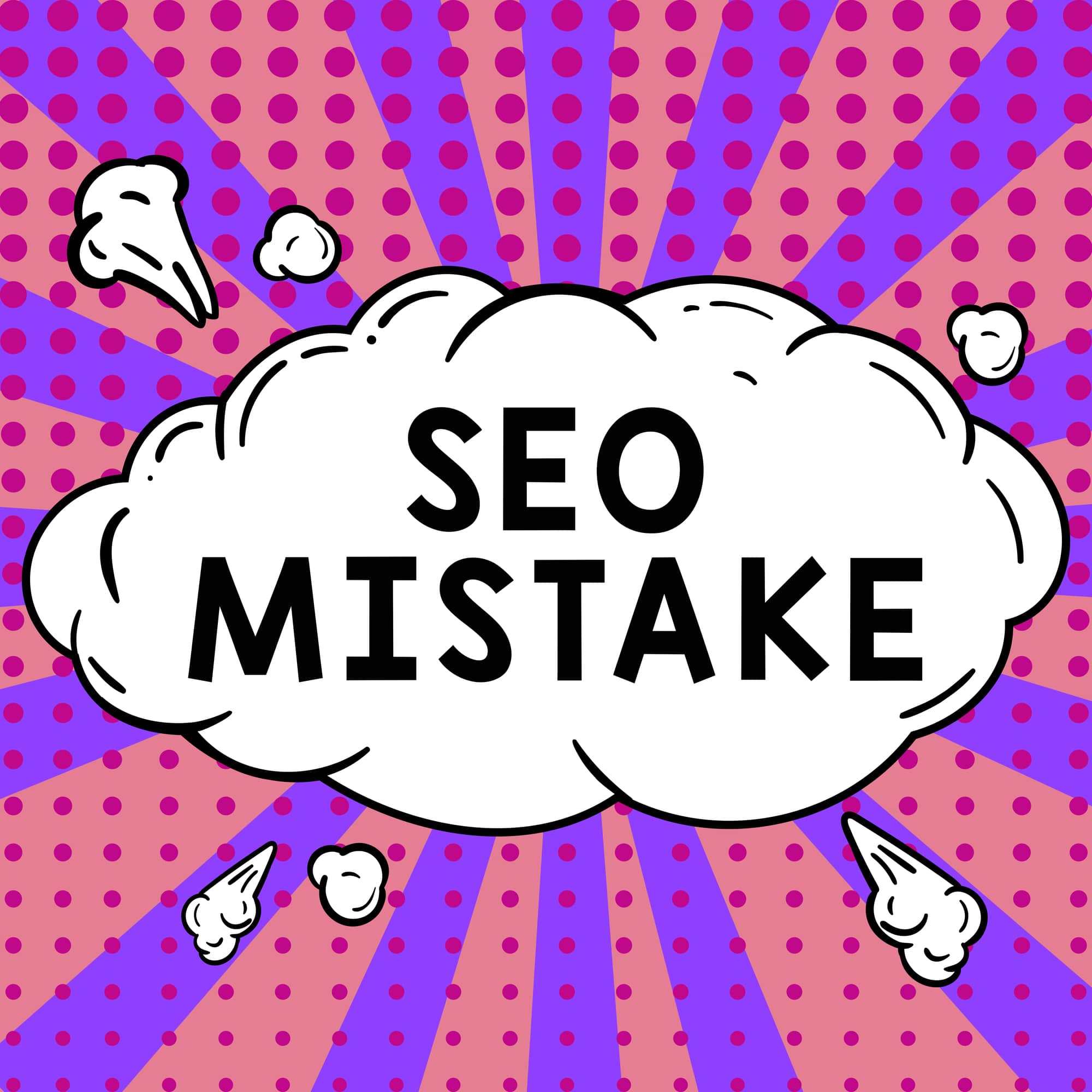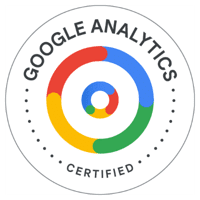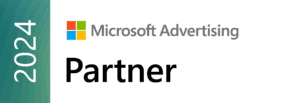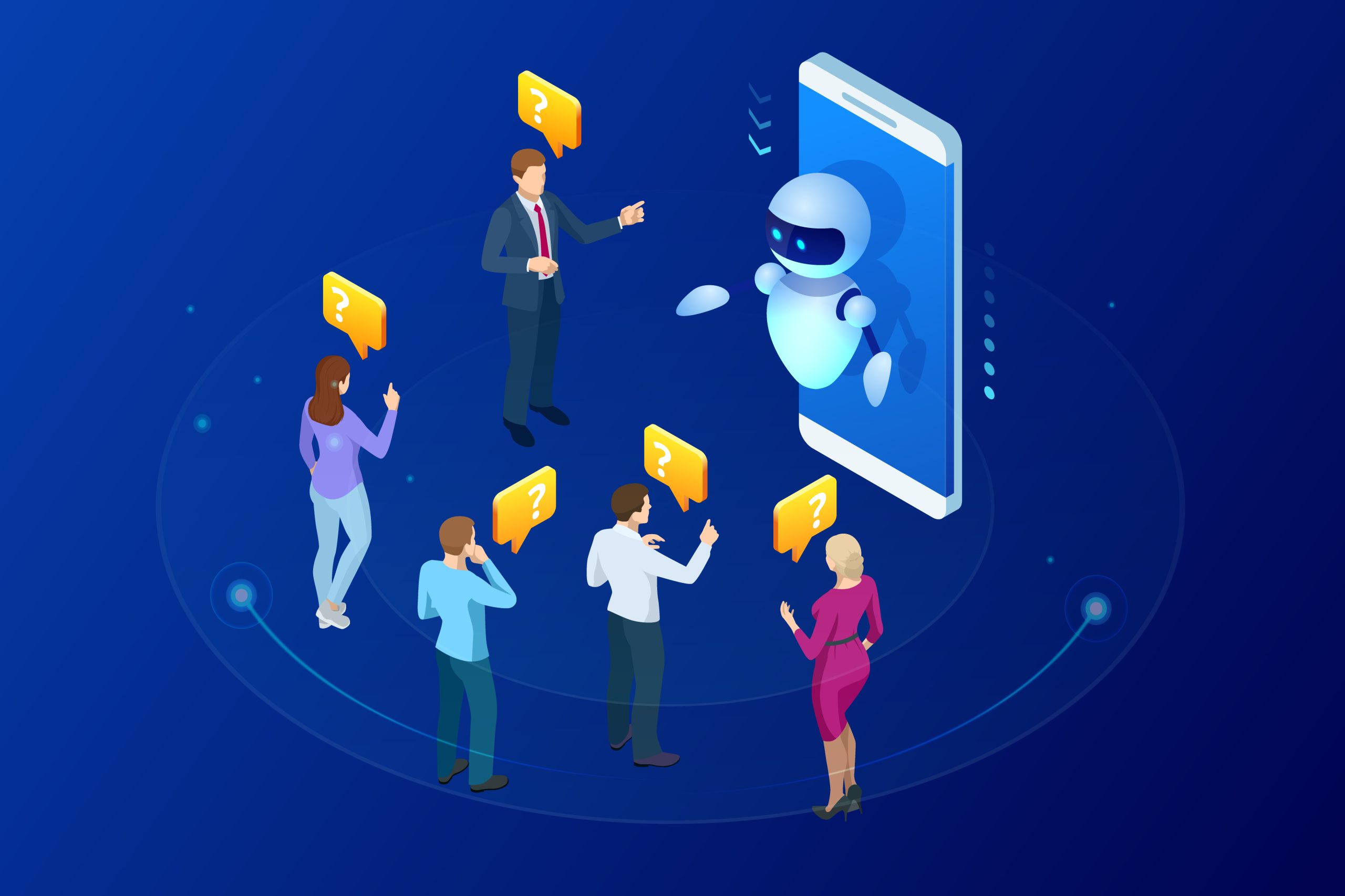 By now you have certainly heard of the potential disruption of ChatGPT’s conversational AI (artificial intelligence) on Bing. If not, here’s a very short version of what’s been going on:
By now you have certainly heard of the potential disruption of ChatGPT’s conversational AI (artificial intelligence) on Bing. If not, here’s a very short version of what’s been going on:
ChatGPT launched a beta online. Millions of users tried it out and were fascinated by the conversational-like nature of the results they received when entering a query into the interface. Microsoft invested $10 Billion in OpenAI (ChatGPT’s creator) and its subdivision, Bing, implemented ChatGPT into its search interface. Google announced plans to debut Bard, its own AI-driven tool. All of this in just a matter of weeks.
The race is now on.
At least it seems that way.
In truth, the race toward implementing AI into the technologies impacting our lives was started quite a while ago. Amazon’s Alexa, Google’s Assistant and Apple’s Siri are examples of AI – machine learning technologies many of us have used for some time now. They perform some tasks very well, others poorly and users adapt accordingly.
What Makes ChatGPT Different?
ChatGPT sits apart from these technologies as it was developed to be more conversational and uses a generative model. In other words, it can generate new responses based on the input it receives. And now that it has been implemented into search, this powerful new form of AI is now in everyone’s hands (or at their fingertips), and it’s left many marketers scrambling.
The business uses of ChatGPT are many. From improving customer service with Chat Bots to developing software in a variety of coding languages with speed unmatched by humans. periscopeUP uses it internally to assist in content development. We are careful to fact-check the outputs and edit the content to put it in the proper brand voice, but it has allowed us to research and draft content much more efficiently.
Beyond typical business cases, however, we must understand the implications AI has – or will likely have – on search marketing and advertising.
AI’s Effect on Search Engine Marketing
Bing’s chatbot has many search marketers hoping (praying) that its launch is just the disruption the industry needs to realize greater competition in the search engine market. Most research agrees that Google has anywhere from 85-90% of market share while Bing has a mere 6-9% in the United States. Those numbers haven’t changed much over the last several years, including the last couple months during Bing’s launch of ChatGPT.
Currently, Bing is testing the technology. You’ll find “Chat” in their submenu just beneath the search field and Bing is granting permission for users to engage with it. We have seen evidence of Bing inserting ads (screenshot is below – with thanks to Barry Schwartz, SERoundtable) into the Chat results, much like one would find on native advertising networks like Taboola and Outbrain. Unlike native ads, these appear as a result of an engaged user seeking information.
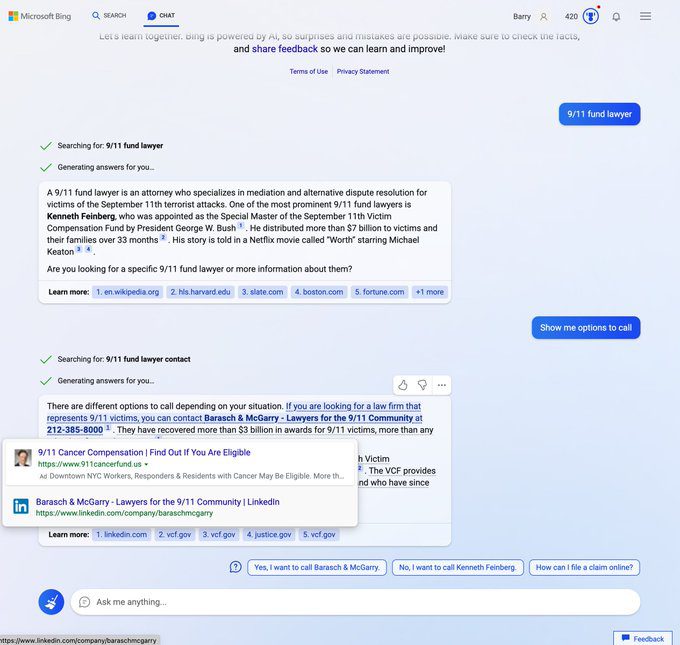
What are ChatGPT Ads?
We don’t have any insight into how advertisers will manage this on the Microsoft Ads platform, but it is just a form of display advertising based on keywords. I may be oversimplifying the process, but Google and Bing intentionally make search and display advertising so easy, it is reasonable to assume ad opportunities within Chat will be just as straightforward when launched. Microsoft has also hinted ads may come within the search results pages, too, but we have not seen examples of this yet. We expect some form of advertising in Chat will be available on Bing in the second quarter of this year.
What Does ChatGPT Mean for SEO?
With regard to SEO (Search Engine Optimization), it is not clear how marketers are going to increase their visibility organically within Chat. Currently Bing is citing its sources in the chat results/responses. Should the content on your website inform a Chat response, then your website will get credit and potentially a new visitor if the user clicks through. That’s a big if.
Similar to having your website’s content appear in a Google Featured Snippet, there is little upside to the content creator. Most users don’t click through from a Featured Snippet because their question was answered without leaving the results page. That has been a win for Google – keeping users on the search results page increases their odds of that users clicking on ads and generating revenue.
Will ChatGPT Replace Google?
Today, there is little evidence of any disruption with the search marketing industry. If the measure we use to determine Google and Bing’s performance is usage, then very little has changed in the last several months (Statcounter.com trendline below) as compared to the prior year.
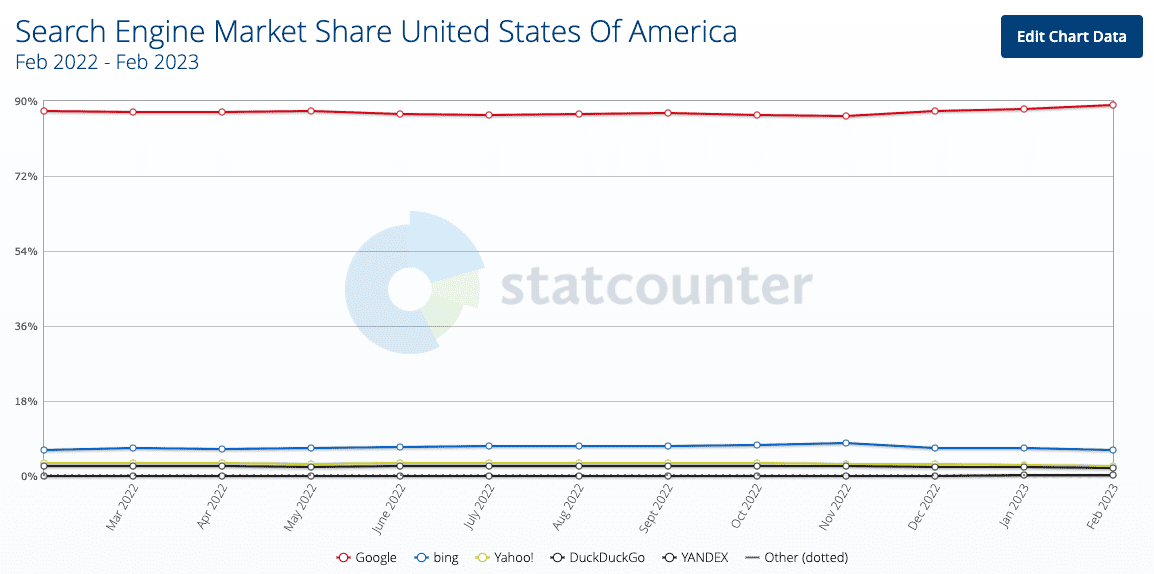
This is not to say that Chatbots for search will not improve Bing and Google’s current search offering. They likely will, and soon.
Chatbots are a departure from search and in the near term, users will likely see it as another tool like maps and image search results – they’ll leverage one or another depending on their needs.
But will Chatbots find the specific information users are looking for – more quickly and accurately than a user can mine in the search results on their own? Unlikely. A conversational and generative technology like ChatGPT will not provide users with the ability to select from wide ranges of information and data the way search results do.
Ads are Google’s bread and butter, generating the majority of their revenue. With the expected release of their own Chatbot, Bard, there is no reason to believe they will cannibalize the search platform and risk losing revenue to a display model within Chatbot results. Disruption is unlikely to come from within the search industry without Google taking the lead.
However, where Google’s search dominance could take a hit is in verticalized Chatbots. Today, travel, healthcare, and ecommerce all use Chatbots to improve their customer service. If those industries refocused and improved their chatbots by engaging their customers or prospects in conversation, their websites would become more valuable information repositories.
Today, users will commonly Google the stock prices of the most popular companies around the world.
But imagine if a financial services firm had a Chatbot that could not only search stock prices but also help customers understand if purchasing the stock would be beneficial to them. Which website would you choose to search on?
Looking ahead, there is a case to be made where industry associations should collaborate to increase the value of a Chatbot which has access to more in depth information in real time than Google (i.e. travel pricing, automotive inventory, etc.). In this way, ChatGPT might just lead the disruption that changes search marketing.
